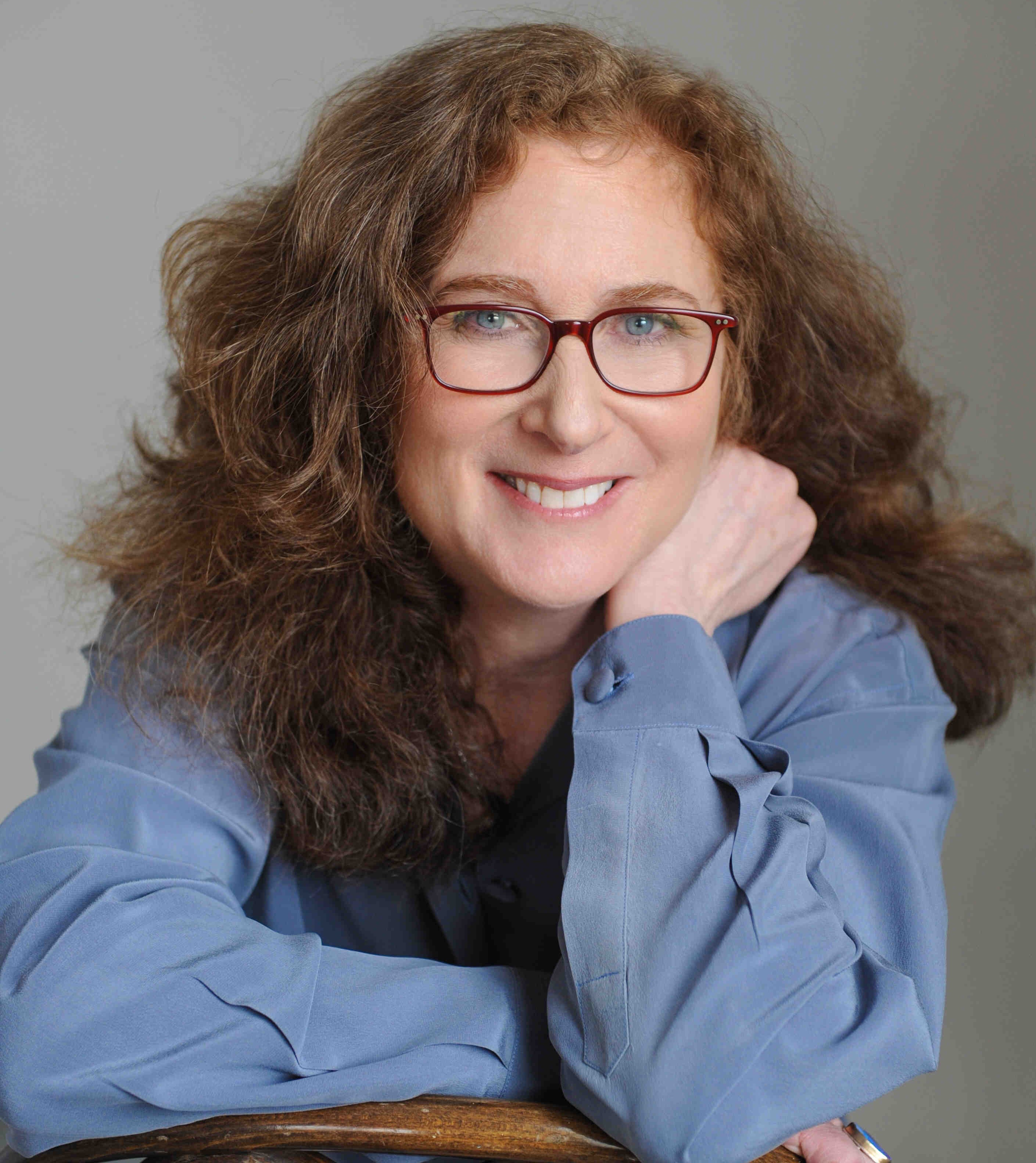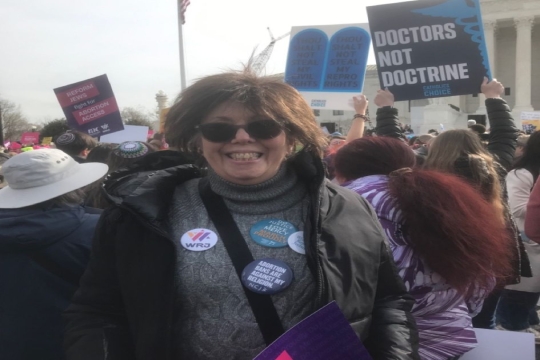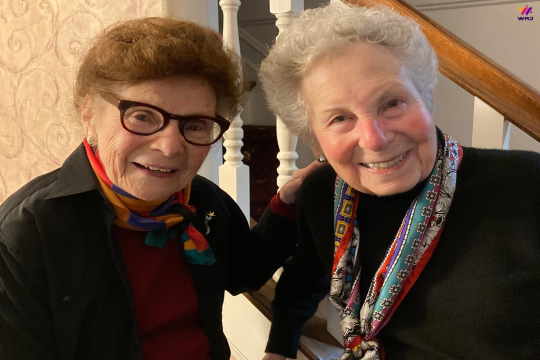
Being a WRJ individual member who serves on the board reflects my commitment to my Reform Jewish feminist values. The following is a glimpse into this lifelong journey.
I was born in 1961 with the last name Schwartz-- an indication to most, despite red hair and freckles, that I am Jewish. I grew up in a stereotypical, traditionally gendered, 1960s non-Jewish, white, middle-class neighborhood in the western suburbs of Philadelphia. My father (z”l), was a physician, and my mother (z”l), the CFO (chief financial officer) of the family. My mother dropped out of an Ivy League college to marry him. My brothers were both adopted as infants. I was a “pleasant surprise” after the adoptions and two miscarriages. This history has informed my sensitivity to many dimensions of “otherness.”
When I was young, I went to a Jewish day camp, Jewish overnight camp, and participated in a Jewish “Teen Tour” to California. Although Jewish in nature, being in these environments did not enhance my commitment to Judaism. I felt no affinity with most in attendance except for the common thread of being Jewish.
Twice I was the victim of anti-Semitic attacks. I had stones thrown at me and was called anti-Semitic names by students waiting for the school bus very close to my home; another time, I was beaten up at the little league field adjacent to my synagogue. Despite these early experiences, for much of my youth, I didn’t think about what it meant to be Jewish. It was just a fact of life.
Although my mother did not keep a “kosher home,” another part of my upbringing included the weekly delivery of kosher chickens and eggs. Her parents, “Nanny and Poppy Sam,” came every Friday night for dinner. We did not light Shabbat candles, say blessings, or attend synagogue, with the exception of the High Holidays.
Both of my brothers each became a Bar Mitzvah. My father did not believe girls should have a Bat Mitzvah but maintained I needed to continue in religious school and became a confirmand. The year is 1977; I read the song lyrics of “Teach Your Children” by Crosby, Stills, Nash, and Young.
In preparing for this article, I asked Rabbi Mayer Selekman, Rabbi Emeritus of Temple Shalom, Broomall, PA, how I came to read these words. He responded, “My methodology for all Confirmation classes was to have each class choose its own theme and each confirmand to select her/his content that fit the theme, then collectively decide how to organize the service.”
I now realize my confirmation experience became the foundation of my Jewish practice. I was given the freedom to be creative and to find personal meaning. It remains the way I live my Judaism today.
The importance of my being Jewish has grown over the years. This developed primarily as a result of my relationship with Rabbi Selekman, whose ongoing receptiveness to my questioning, along with his guidance, encouragement, and love, has and continues to strengthen my understanding of, and connection to, my Jewishness.
By the time I attended graduate school, my Jewishness was deeply embedded in my sense of self. What was a very foreign concept to me was feminism. Pursuing degrees in psychological services as well as human sexuality education offered many opportunities to learn about feminist theory and to explore my beliefs, values, and experiences through a feminist lens.
What fortified my feminist outlook was meeting Susan Vasbinder (z”l). Susan’s entire life was dedicated to social justice. She was an outstanding leader and educator who taught about dissecting “ism” issues (racism, sexism, heterosexism, etc). When I sought to integrate my Jewishness with feminism, I discovered the world of Jewish feminists.
What I hadn’t realized, incorporated into the teachings of Rabbi Selekman was a Jewish feminist perspective. A prime example is that for as long as I can remember, Rabbi Selekman was a strong Pro-choice advocate. This Jewish, feminist message had been a part of my religious education all along. I now could identify it and embrace it!
When my intrafaith (he was conservative, I reform) marriage ended, I went to Rabbi Selekman to discuss my former partner’s request that I sign a Get, a request that felt like a challenge to my Jewish and feminist beliefs. After exploring my values with him, I did not sign it.
Fast forward to my current involvement with WRJ. Participating with women on social justice issues contributing to Tzedakah efforts, and being involved in tikkun olam, all within the framework of Reform and Progressive Judaism, allows me to put my Jewish feminist values into action. By doing so, I am able to honor the invaluable teachings of Rabbi Selekman and honor the memory of Susan Vasbinder, feminist mentor, former significant other, and best friend.
This story is part of WRJ's "Sharing our Stories" series. Reform/Progressive Jewish women in North America and worldwide share personal stories of sisterhood, spirituality, and social good to create connections and a better understanding of each other, our shared values, goals, and challenges. Want to share your story? Communities around the world would love to hear from you. Please contact WRJ Secretary Karen Goldberg for more information.
Related Posts

Andrea Stillman: A WRJ Leadership Spotlight

